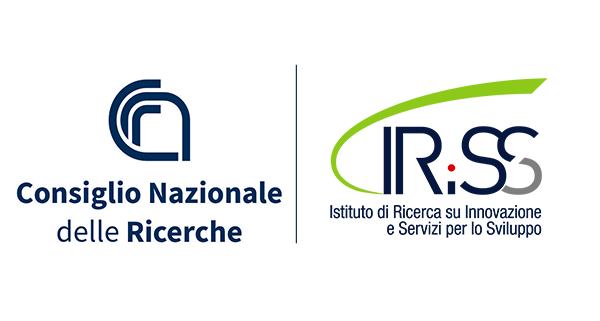‘Migration and Development’ is one of the key areas of studies of CNR-IRISS. In addition to other relevant scientific results, researchers and associates are offering to experts, scholars and policy makers some space for public in a collection of peer-reviewed and open access volumes.
 The ongoing events concerning the migratory flows in the Mediterranean have pushed the issue of international migration to the top of the European political agenda, even during the Covid-19 pandemic crisis. But, the attention of scholars seems to focus more on the questions regarding admission / rejection of migrants on the territory of receiving countries than on the general topic of the contribution of migrants to the financial, social and cultural development of societies (of origin, transit or destination).
The ongoing events concerning the migratory flows in the Mediterranean have pushed the issue of international migration to the top of the European political agenda, even during the Covid-19 pandemic crisis. But, the attention of scholars seems to focus more on the questions regarding admission / rejection of migrants on the territory of receiving countries than on the general topic of the contribution of migrants to the financial, social and cultural development of societies (of origin, transit or destination).
This issue is considered of the utmost importance, when attention is paid to the establishment of societies based on inclusive growth and sustainable development. States, international and intergovernmental organizations have fostered a dialogue at national, regional and international level on the promotion of development through migration. See, inter alia, the United Nations 2030 Agenda for Sustainable Development and the 17 Sustainable Development Goals (2015), Goal 10 in particular; the 2016 New York Declaration on Refugees and Migrants, paras, 1 and 46 in particular; the 2018 Global Compact for Safe, Orderly and Regular Migration; the EU New Pact on Migration and Asylum, proposed by the European Commission on 23 September 2020.
‘Migration and Development’ is one of the key areas of studies within the Institute.
In particular, CNR-IRISS, jointly with the Law Department of the University of Naples “Federico II”, carries out research on migration flows (focusing on international migration movements) to provide methods, models and guidelines to the Countries of origin of migrants, and to highlight the advantages arising from the generation of value (economic, social and cultural) connected with migration.
The results of the analysis carried out on this topic have fed scientific publications, research reports and ‘food for thoughts’ distributed on the occasion of international conferences.
In addition, from 2016 on, some call for submission have been issued to offer experts, scholars (in particular, but not only, early-stage researchers) and policy makers some space for public discussion on questions, implications and achievements concerning international migration. The outcomes of the submissions are the volumes, peer-reviewed and open access, published by CNR edizioni and edited by researchers and associates if the Institute and by scholars of other Universities of Italy.
The first volume ‘Migration and Development: Some Reflections on Current Legal Questions’ (2016) does not cover all the aspects of the multi-faceted, complex relation between migratory flows and development (of people, society, and countries). The ten contributions of the volume set the stage for the research by offering not only a general exposition on M&D-related legal issues, but also focusing on some specific issues (migrant workers’ rights, the protection of asylum seekers, the arrival of highly qualified workers and the risk of economic growth of country of origin, the unskilled workers and the development cooperation).
In the volume “Migration and the Environment: Some Reflections on Current Legal Issues and Possible Ways Forward” (2017) the seven collected papers analyze from different perspectives the link between migration and the environment and the phenomenon of environment-related migration, to discuss the extent to which people, whose movements are induced by environmental factors, are protected under the existing international legal framework, investigate the main legal issues and normative gaps and analyze the solutions at stake.
In 2019, a new volume was published on “Migration Issues before International Courts and Tribunals”. It provides a comprehensive critical review of international case-law on both general and specific questions arising in specific domains of international law related to human migration, such as the contours of international responsibility for refugee protection, migrants’ human rights at sea, judicial standards on the protection of vulnerable groups. The sixteen collected papers aim at contributing to the assessment of the extent to which international judges have played or could play a law-making role in the field of international migration law.
A new volume, on “Migration and Culture: Implementation of Cultural Rights of Migrants”, is under preparation. The volume aims at contributing to the reflection on global cooperation in the promotion of cultural rights of migrants, including the right to participate in cultural life and to enjoy the arts, in the context of the post-Covid-19 pandemic outbreak. More than a dozen of authors submitted their abstracts after a call issued last Summer. They are now drafting their final texts. The volume will be published and available open access in the second part of 2021.




You must be logged in to post a comment.